Improving Liver Health: The Plant-Based Diet Advantage
With about 25% of the world’s population affected, nonalcoholic fatty liver disease (NAFLD) has become a global epidemic. The excessive buildup of scar tissue in the liver, known as hepatic fibrosis, is one of the most dangerous side effects of nonalcoholic fatty liver disease (NAFLD). Cirrhosis, liver failure, or hepatocellular cancer are frequently the results of this process. The relevance of plant-based diets in controlling nonalcoholic fatty liver disease (NAFLD) and lowering the risk of hepatic fibrosis is currently being supported by an increasing amount of scientific data. With its ability to reduce inflammation, increase fiber intake, and improve metabolism, a plant-based diet becomes a potent intervention.
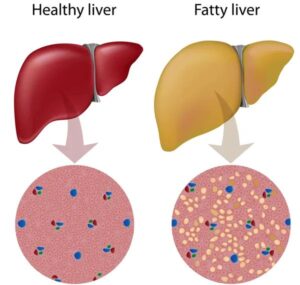 Knowing about NAFLD and Hepatic Fibrosis
Knowing about NAFLD and Hepatic Fibrosis
What is NAFLD?
Unrelated to alcohol use, nonalcoholic fatty liver disease (NAFLD) is a chronic liver disease marked by hepatic fat accumulation. It starts with simple steatosis (fatty liver) and progresses to nonalcoholic steatohepatitis (NASH), which can lead to liver cancer, cirrhosis, or fibrosis.
What Causes Hepatic Fibrosis?
Chronic liver cell damage and inflammation lead to hepatic fibrosis. Hepatocyte damage sets off immunological reactions that activate hepatic stellate cells, which in turn overproduce extracellular matrix proteins, mostly collagen, which results in scarring.
The Anti-Inflammatory, Antioxidant, and Liver Protection Benefits of Plant-Based Diets
Phytochemicals included in plant-based diets, such as polyphenols, flavonoids, and carotenoids, help fight oxidative stress, which is a significant cause of fibrosis and damage to liver cells. Chronic liver inflammation is reduced by whole-plant diets, which inhibit pro-inflammatory cytokines such as interleukin-6 and TNF-α.
More Fiber and Less Saturated Fat
An average Western diet that is heavy in sweets and animal fats encourages insulin resistance and lipotoxicity. Conversely, diets based on plants are high in soluble fiber and low in saturated fats, which:
enhances the makeup of the intestinal microbiota.
minimizes the absorption of fats.
helps in weight control.
Hepatic fat accumulation and metabolic dysfunction are considerably reduced by these pathways.
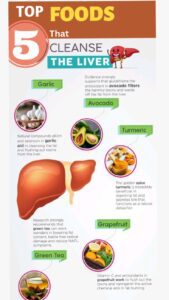
Vital Nutrients in Plant-Based Diets: Vitamins E and C Protect the Liver
These antioxidants, which can reverse early fibrosis and shield liver cells from oxidative damage, are present in leafy greens, citrus fruits, nuts, and seeds.
Both potassium and magnesium
These nutrients, which are abundant in whole grains, legumes, and bananas, improve insulin sensitivity, which is essential for stopping the progression of NAFLD.
The Fatty Acids Omega-3
Although it is frequently linked to fish, alpha-linolenic acid (ALA) can be found in plant sources such as walnuts, chia seeds, and flaxseeds. ALA lowers triglyceride levels and inflammation in the liver.
Scientific Proof That Plant-Based Diets Reduce the Risk of Hepatic Fibrosis Population-Based Studies
People who followed a pro-vegetarian diet had a considerably lower chance of getting advanced liver fibrosis than people who followed an omnivorous diet, according to a large cohort research published in The American Journal of Clinical Nutrition.
Medical Experiments
Hepatic fat, liver enzyme levels (ALT, AST), and even fibrosis markers are reduced when people adopt plant-based eating patterns like the Mediterranean or DASH diets, according to intervention research.
Effects on the Gut-Liver Axis of Plant-Based Diets
Microbiota Alteration
Bifidobacteria and Lactobacilli, two beneficial gut bacteria that create short-chain fatty acids (SCFAs) like butyrate, are favored by a high-fiber, plant-based diet.
strengthen the integrity of the intestinal barrier.
Cut down on the translocation of lipopolysaccharides (LPS).
Reduce inflammation in the liver and systemic areas.
Diminished Endotoxemia
Endotoxins are a major factor in the progression of hepatic fibrosis, and plant-based diets stop them from leaking into the bloodstream by preserving a better gut barrier.
Comparative Analysis of Animal-Based Diets
The following are linked to diets based on animals, particularly those heavy in red and processed meats:
elevated pro-oxidant (heme iron) levels.
high percentage of saturated fat.
Visceral obesity and insulin resistance are elevated.
Plant proteins found in quinoa, tofu, and legumes, on the other hand, are good for the liver and reduce the chance of fibrosis worsening.
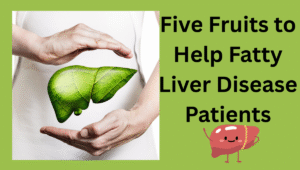 In the real world, leafy greens, including spinach, kale, and arugula, are recommended foods for patients with non-alcoholic fatty liver disease.
In the real world, leafy greens, including spinach, kale, and arugula, are recommended foods for patients with non-alcoholic fatty liver disease.
Fruits: avocados, berries, and apples.
Whole Grains: Quinoa, brown rice, and oats.
Legumes include black beans, chickpeas, and lentils.
Seeds and Nuts: Chia seeds, flaxseeds, and almonds.
Foods Not to Eat: processed and red meats.
dairy items that are full-fat.
refined sweets and white bread.
trans fats and foods that are deep-fried.
The Best Ways to Make the Switch to a Plant-Based Diet
Get started progressively
Start with a plant-based substitute for one meal each day. Make the switch to plant-based breakfasts or meatless Mondays.
Mix Up Your Plate
Include a variety of plant-based foods to maintain diversity and optimize nutritional consumption.
Track Your Nutritional Intake
Ascertain sufficient consumption of iron, vitamin B12, and omega-3 fatty acids; these may necessitate supplementation under expert supervision.
Examples & Success Stories
Through the adoption of whole-food, plant-based eating habits, a number of NAFLD patients have successfully reversed early-stage fibrosis. According to clinical data from lifestyle medicine centers:
reduced by more than 20% the percentage of liver fat.
restoration of normal liver enzyme levels.
Within six to twelve months, improved lipid and HbA1c profiles.
In conclusion,
A plant-based diet can be a game-changer in the battle against hepatic fibrosis in those with nonalcoholic fatty liver disease. Because of their anti-inflammatory, antioxidant-rich, and high-fiber qualities, plant-based diets not only aid in liver detoxification but also halt the processes that cause fibrosis to worsen. Adopting plant-forward eating habits can help us regain metabolic health and significantly lower the burden of liver disease.
 https://analytics.google.com/analytics/web/#/analysis/p405220706
Skip to content
https://analytics.google.com/analytics/web/#/analysis/p405220706
Skip to content 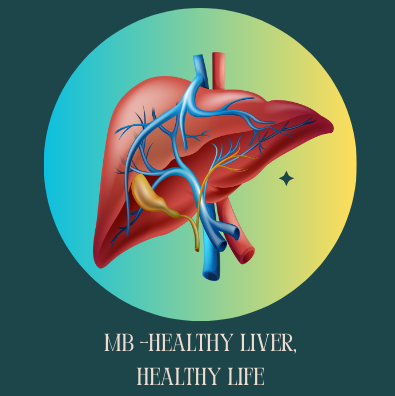
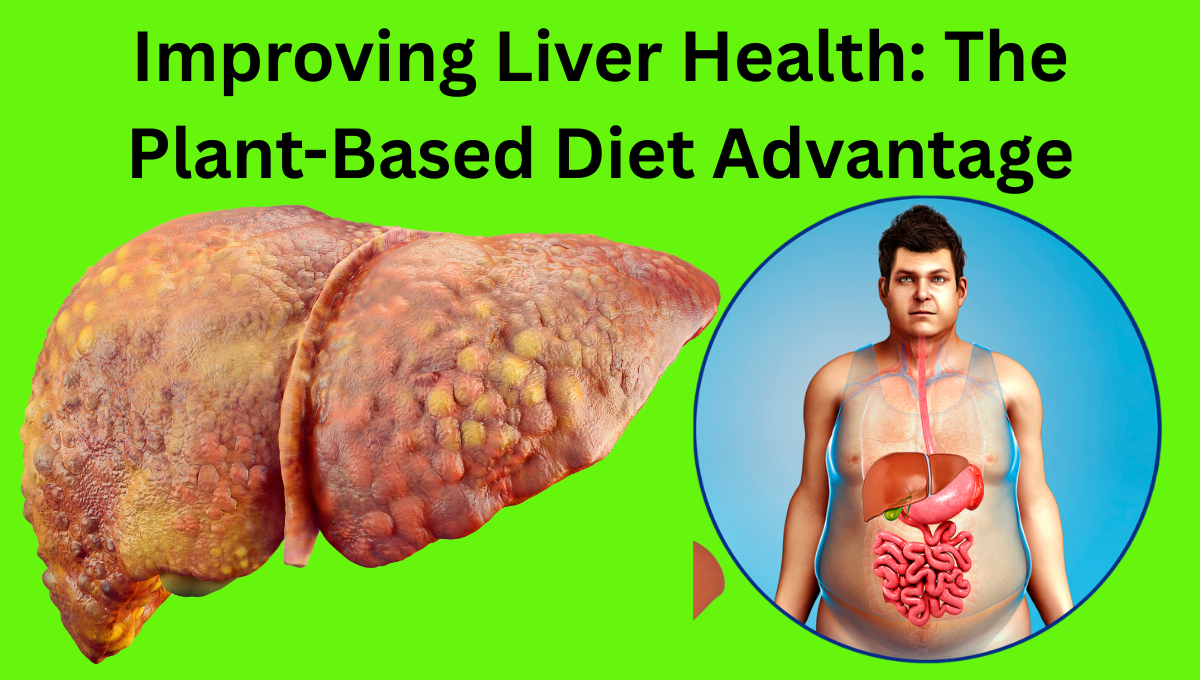
2 thoughts on “Improving Liver Health: The Plant-Based Diet Advantage”